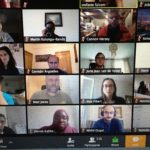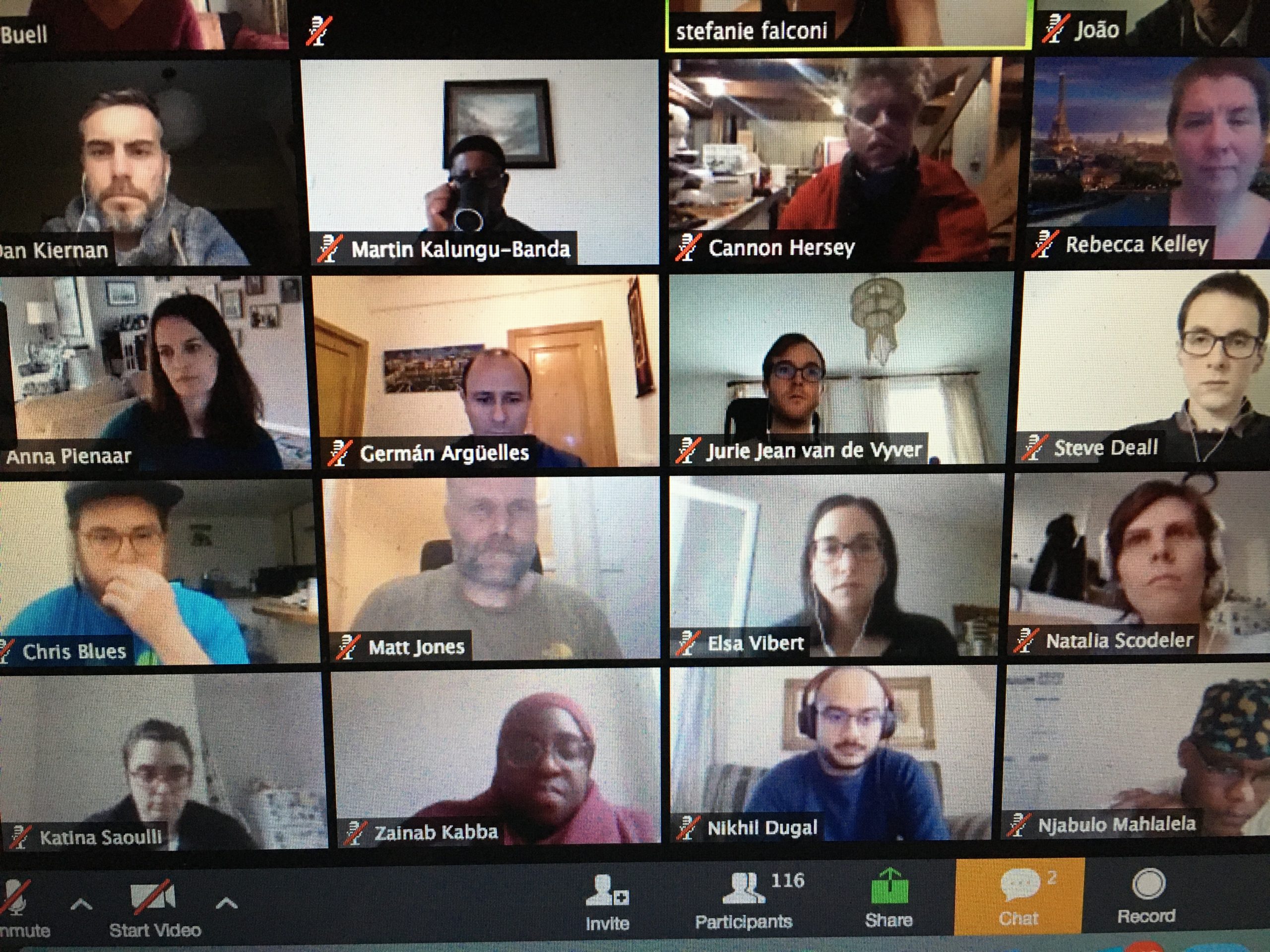
As more meetings move online, it is a good time to share tips and resources on facilitating online meetings with each other. Although you may find that the current coronavirus environment and the cancellations of in-person meetings is ‘forcing’ a shift to more online activity, look at it as an opportunity to do more virtually and expand your and your organization’s skills and capacities. Once you and your group(s) are comfortable with this forum you may find that it will save you valuable travel time (and minimize your carbon footprint) going forward. Although there is no substitute for in-person meetings, adding some virtual meetings to your meeting schedule going forward may end up being an attractive option.
Here are some tips from over a decade of doing online meetings. For those of you who are also veterans of many videoconference meetings, these may just be useful reminder or something to share with less experienced colleagues. For others I hope you might find some useful ideas.
- Many people (even seasoned professions) are not necessarily familiar or comfortable with videoconference technologies. You need to allow time (before or at the beginning of the meeting) to make sure everyone understands how to use the technology you are using.
- Although subscription platforms like WebEx and Zoom are more stable than Skype, some participants depending on where they are connecting from may still experience bandwith and connection issues.
- Anticipate that there will be technical challenges and be flexible. It will help to plan some extra time into the agenda in anticipation of problems. If you don’t have them, you have gained time in the agenda!
- More so than for an in-person meeting, people may come late and leave early. Some extra time at the beginning of the meeting, and periodic summaries if you lose people can be helpful.
- Send out a few short items (agenda and brief background for any major items you will be discussing) in advance that people and the chair or facilitator can refer to during the meeting to keep everyone together in the discussion. You may want to share your screen, or use a whiteboard (depending on the platform you are using) to share this information during the meeting as you would during an in-person meeting in order to better follow it together.
- Questions, prompts and varying the pace of the meeting will be important to keep people’s attention, especially if the meeting is over an hour. Also for longer meetings you may want to schedule in bio or stretch breaks.
And a few tips for larger meetings:
- Using breakout rooms may be helpful for larger groups. Again, practice with this option in advance and provide good instructions to your participants.
- Have additional facilitators, timekeepers and note takers to help keep things on track.
The Global Education Conference is a particularly good example of a large, online global event.
Recent shared experiences
Mobilisation Lab reorients a five day in-person training to virtual (April 2020)
Skoll Foundation Annual Forum goes virtual (April 2020)
Adapting International Development to Covid virtual meeting (April 2020)
Experience, Deliver, Test, International Red Cross Federation (April-May 2020)
Additional Resources
Here are a number of resources that may be useful:
So You Want to Host a Web Meeting? – the basics
Organizing a virtual meeting from WordPress community (scroll down)
Tools and Tips for Facilitating Online – Campaign Bootcamp
Virtual ice breakers
Tips specifically for Zoom meetings
Breakouts during video meetings
A few more tips here, here, here and here
Leading Groups Online (a new free manual)
Online meeting platforms (with multilingual options on Slide 5)
List of Tips, Tools, and Examples for Event Organizers During the Coronavirus Outbreak (includes a section on running virtual events)
If you’re dealing with a number of time zones, Time and Date and especially their meeting planner are invaluable
And if you want to dig deeper, a whole range of resources from an ad hoc group of Facilitators for Pandemic Response
